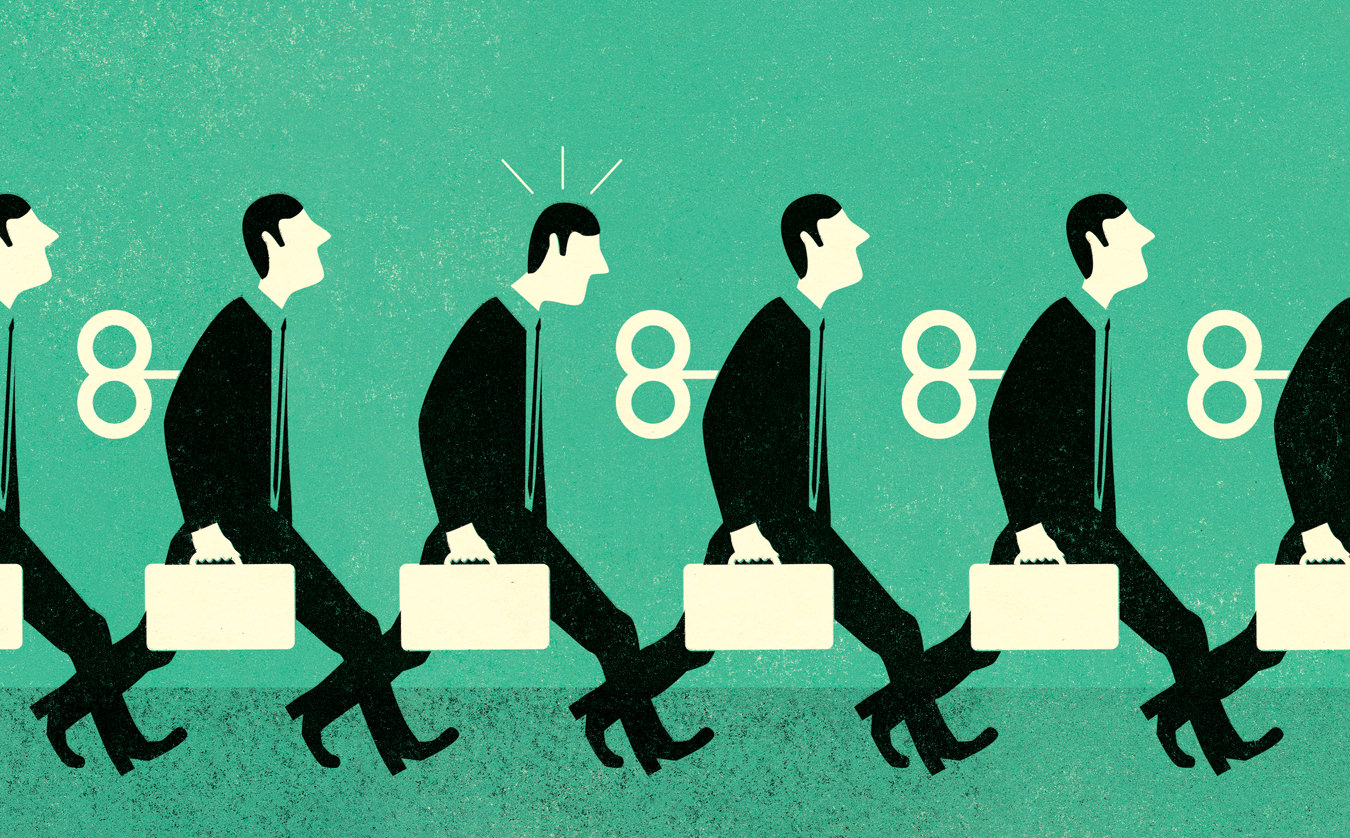Men (Not) at Work
A new generation of programmable machines.

In the end, it didn’t take a calabash pipe and a wry wit to crack the case—a computer algorithm did the job just fine. Back in February, U.K.-based RAVN Systems put its purpose-built cybersleuth to work uncovering a major bribery scandal at Rolls-Royce. The CPU-d crusader scoured some 30 million legal documents, revealing corruption and financial malfeasance that led to a £671-million ($1.1-billion Canadian) settlement.
It likely won’t be the last time a machine gets the job done. Robots are expanding past their home on the factory floor and starting to threaten human employment in a variety of professions. In the future, much of the drudgery of the working world—be it the widget building of blue collar jobs or the paper pushing of white collar ones—will be outsourced to some form of computer, whether it’s on wheels or not.
Over the past few years, scientists have been busy devising machines that can perform complex job-related tasks that at one time only humans could do. San Francisco–based Momentum Machines has built a robot that can make gourmet hamburgers. You can find Knightscope’s eerily Dalek-like robots patrolling the shopping malls and parking lots of Silicon Valley by day and night. Down on the farm, the Australian Centre for Field Robotics has developed a mechanized shepherd, while Kyoto-based Spread has created the Vegetable Factory, an indoor hydroponic farm that can feed, water, and harvest thousands of heads of lettuce a day with minimal human input. Meanwhile in India, CaseMine has developed an artificial intelligence (AI) that aims to make paralegal and legal research positions obsolete.
Robots are expanding past their home on the factory floor.
Feeling a little nervous? A visit to the website replacedbyrobot.info might calm your nerves—or not. The site uses data from a 2013 Oxford University study to provide an educated guess about the likelihood that over 700 different jobs will be “computerized” over the next 20 years. Turns out bookkeepers (98 per cent), roofers (90 per cent), and taxi drivers (89 per cent) have plenty to worry about. The news is better for optometrists (14 per cent), floral designers (4.7 per cent), and (perhaps unsurprisingly) human resource managers (0.55 per cent).
Perhaps a more intriguing question than whether we’ll lose our jobs is what happens when we do. When some imagine a future without jobs, they see a pleasant, Star Trek–ish population liberated from the burdens of dull, meaningless work, with individuals free to find and follow their true purpose. Then again, you needn’t turn to science fiction to find examples of how job-busting technology creates as much despair as it does hope—just ask the good folks in the Rust Belt about the “freedom” of not having to get up for the Monday morning shift, or talk to a taxi driver about the “excitement” of self-driving cars.
The fact is, making a living has always been about more than making money—and the fear of losing your job is more than losing a paycheque. Work is, at least in part, a way of giving your life meaning, structure, and worth. Hard to find that on a pink slip, no matter how much “freedom” comes with it.
Never miss a story, sign up for NUVO’s weekly newsletter, here.







